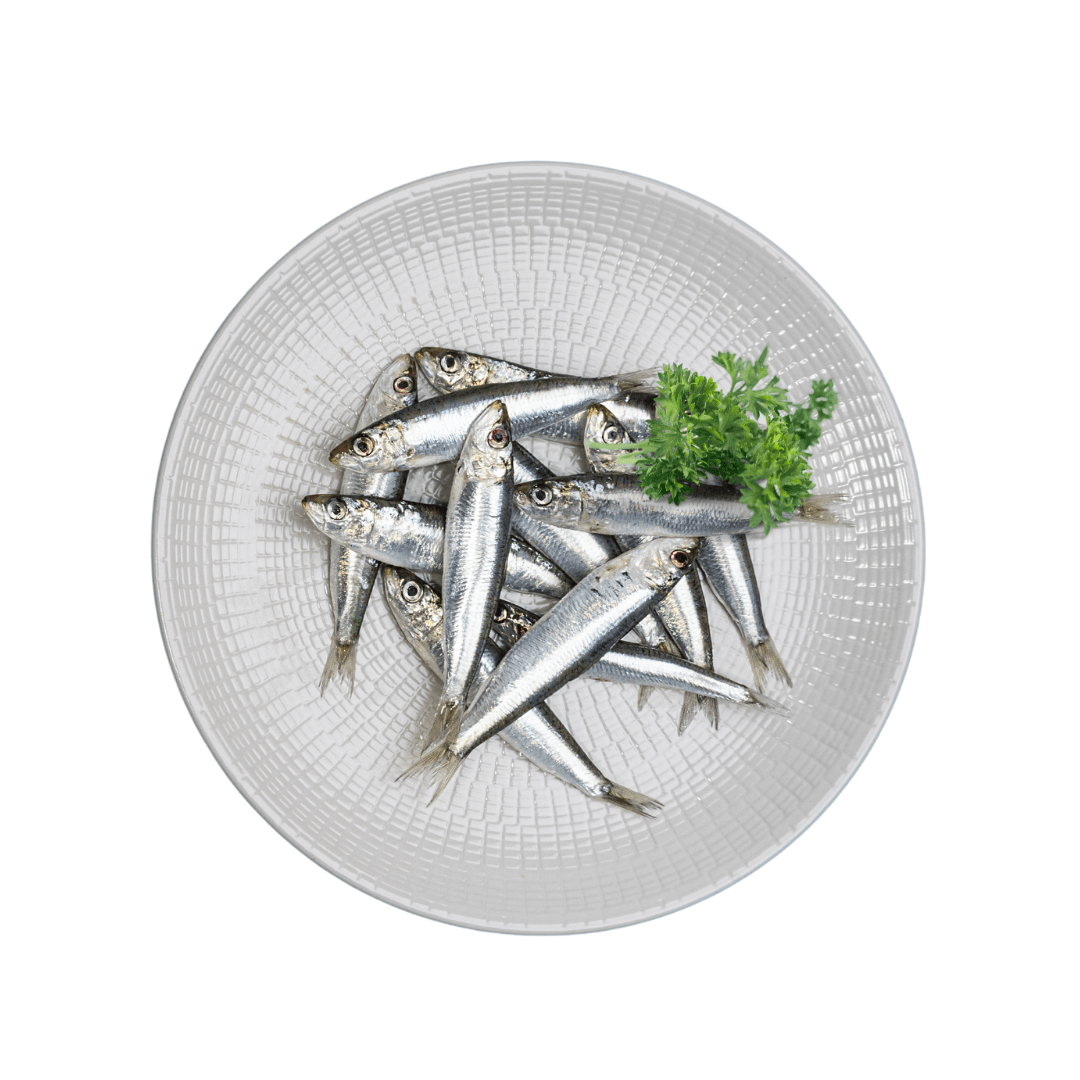About Sardines
Sardines are small, oily fish that are commonly consumed as a food source worldwide. They are packed with nutrients and are considered a healthy addition to a balanced diet.
Health Benefits of Sardines:
- High in Omega-3 Fatty Acids: Sardines are an excellent source of omega-3 fatty acids, which are important for heart and brain health.
- Rich in Protein: Sardines are a great source of protein, which is essential for building and repairing tissues in the body.
- High in Vitamins and Minerals: Sardines are packed with vitamins and minerals, including vitamin D, calcium, and iron.
- Boosts Immune System: Sardines are a great source of antioxidants, which help to protect the body against diseases and infections.
- Promotes Bone Health: Sardines are rich in calcium and vitamin D, which are important for building strong bones.
Diseases that can be cured: While sardines may not cure specific diseases, their consumption may help reduce the risk of certain health conditions, such as:
- Cardiovascular Disease
- Diabetes
- Arthritis
- Osteoporosis
- Depression
Nutrition Information per 50g serving of Sardines:
Energy (kcal) 119 Carbohydrates (g) 0 Protein (g) 14.5 Fats (g) 6.5 Fiber (g) 0 Water Content (g) 28
Vitamins per 50g serving of Sardines:
| Vitamin | Amount (mg) |
|---|---|
| Vitamin A | 14.5 |
| Vitamin B1 | 0.1 |
| Vitamin B2 | 0.1 |
| Vitamin B3 | 4.8 |
| Vitamin B6 | 0.2 |
| Vitamin B12 | 8.9 |
| Vitamin C | 0 |
| Vitamin D | 10.9 |
| Vitamin E | 1.4 |
| Vitamin K | 0.5 |
| Folate | 8.8 |
| Biotin | 2.3 |
Minerals per 50g serving of Sardines:
| Mineral | Amount (mg) |
|---|---|
| Calcium | 174 |
| Iron | 1.1 |
| Iodine | 62.5 |
| Zinc | 0.5 |
| Magnesium | 24.5 |
| Phosphorus | 160 |
| Potassium | 238 |
| Sodium | 155 |
| Chloride | 231 |
| Copper | 0.1 |
| Chromium | 0 |
| Fluoride | 0 |
| Molybdenum | 0 |
| Manganese | 0.1 |
| Selenium | 22 |
What is the nutritional value of sardines?
Sardines are a great source of omega-3 fatty acids, protein, vitamins, and minerals that are essential for a healthy diet.
How do you cook sardines?
Sardines can be grilled, baked, broiled, or fried, and can be seasoned with a variety of herbs and spices.
What are the health benefits of eating sardines?
Eating sardines can help reduce the risk of heart disease, improve brain function, support bone health, and lower inflammation in the body.
Are sardines sustainable?
Sardines are a sustainable fish choice, as they are abundant in the ocean and are not overfished.
Can sardines be eaten raw?
Sardines can be eaten raw if they are fresh and properly handled, but it is recommended to cook them to reduce the risk of foodborne illness.
What is the difference between canned and fresh sardines?
Canned sardines are usually packed in oil or water and may have added salt or flavorings, while fresh sardines are sold whole or filleted and can be prepared in a variety of ways.
How can I incorporate sardines into my diet?
Sardines can be added to salads, pasta dishes, sandwiches, or enjoyed as a snack with crackers or bread.
What is the best way to store fresh sardines?
Fresh sardines should be refrigerated and consumed within a few days of purchase.
Are sardines a good source of protein?
Yes, sardines are an excellent source of protein, containing about 23 grams per 100-gram serving.
How many calories are in a serving of sardines?
A 100-gram serving of sardines contains about 200 calories.
Are sardines high in mercury?
Sardines are a low-mercury fish and are generally considered safe to eat in moderation.
Are sardines a good source of omega-3 fatty acids?
Yes, sardines are a rich source of omega-3 fatty acids, which are essential for heart and brain health.
How do you clean and prepare fresh sardines?
Fresh sardines should be scaled, gutted, and washed thoroughly before cooking.
Can sardines be used in recipes that call for anchovies?
Yes, sardines can be used as a substitute for anchovies in recipes like Caesar dressing or pizza toppings.
What is the difference between sardines and anchovies?
Sardines are larger than anchovies and have a milder, less salty taste.
Are sardines gluten-free?
Yes, sardines are a gluten-free food.
Can sardines help lower cholesterol levels?
Yes, eating sardines can help lower LDL cholesterol levels and reduce the risk of heart disease.
Are sardines a good source of calcium?
Yes, sardines are a good source of calcium, which is important for bone health.
How many sardines should I eat in a day?
It is recommended to consume 2-3 servings of fatty fish like sardines per week.
What is the best way to buy sardines?
Look for sardines that are fresh, firm, and have a bright color and clear eyes.








